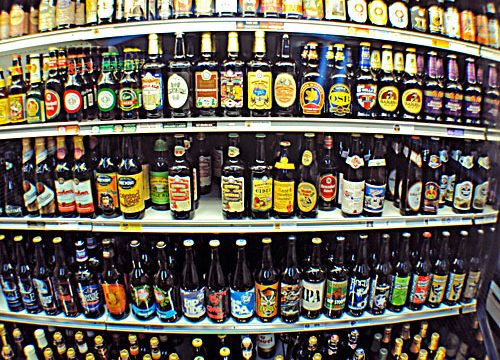North Dakota Town Bans Booze Sales To "Habitual Drunkards"

I’m not sure how I feel about this:
Police in the northeastern North Dakota city of Devils Lake have barred businesses from selling alcohol to area residents who have been jailed repeatedly in the past year for drunken offenses or detoxification.
Most of the 21 people on the initial list were American Indians who live on the nearby Spirit Lake Reservation, the Fargo-based Forum newspaper reported.
“To be honest with you, it did seem racially motivated,” said Paul Matheny, general manager of the tribe’s Spirit Lake Casino, who was asked by the Tribal Council to look into the matter.
Devils Lake Police Chief Keith Schroeder said the effort is data-driven. Those deemed “habitual drunkards” were taken into custody more than five times in the past year for liquor-related offenses or detoxification.
“It is a sensitive subject,” Schroeder said. “We are not singling out these people because of race.”
The list was pared to seven names after officials learned some of the offenses did not occur in the city. Tribal members who were jailed for reservation alcohol violations were housed in the regional jail in Devils Lake last year because the reservation’s jail in Fort Totten was being remodeled. Tribal council members had been hearing from upset constituents who were on the Devils Lake “habitual drunkard” list even though they hadn’t been in the city, Matheny said.
On one hand, I sympathize with the desire to keep booze out of the hands of people who persistently abuse it. According to the article, one person on the list has been put in jail for detoxification no fewer than 47 times. And the racial issue doesn’t bother me. As long as the list is based on behavior, it doesn’t matter if a specific race is responsible for a disproportionate about of that behavior.
That being said, this doesn’t seem to be sound public policy. As a practical matter, how are liquor stores and bars supposed to keep track of this list? Must all alcohol sales now be run through this database?
And what’s the next step, tracking booze sales? Are we going to start putting booze sales in a database? You might think that sounds absurd, but then there was a day when we might have thought it absurd that your cold medicine sales would be tracked.
Plus, the premise here bothers me. We’re holding the booze retailer responsible for what the booze consumer does. That’s not right. Hold the drunks responsible, not the retailers.
According to the article, the city of Devils Lake spent $9,000 last year on detoxifying citizens. I’m about as fiscally conservative as they come, but that’s a pretty small budget line item, especially in the context of what it’s likely to cost to enforce this list.







